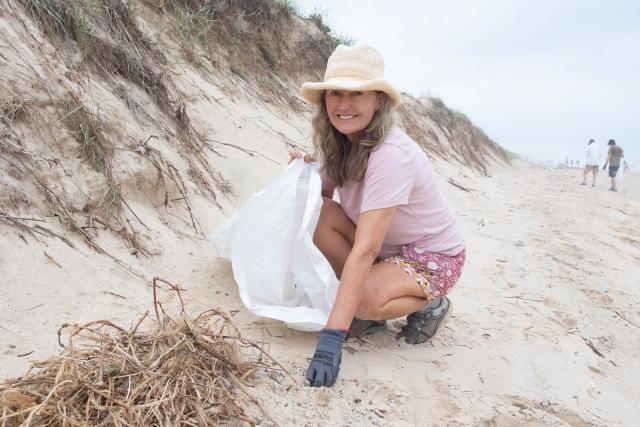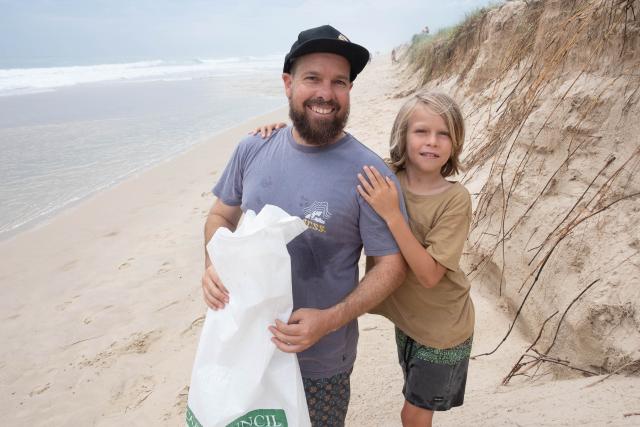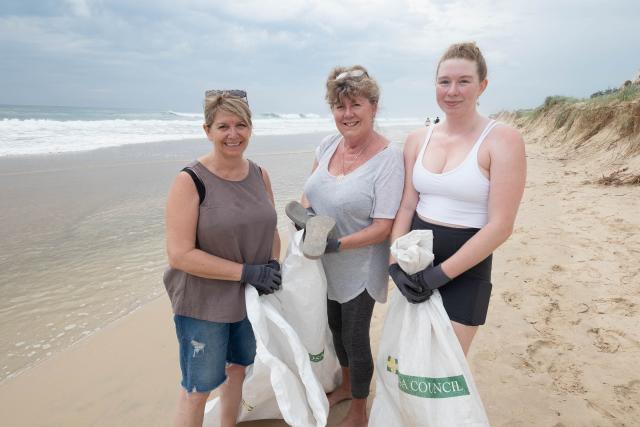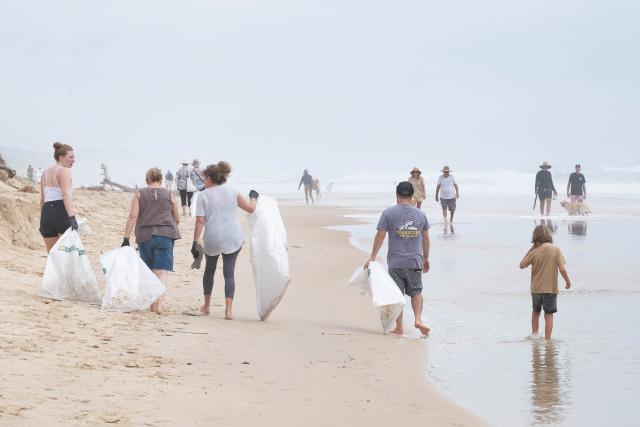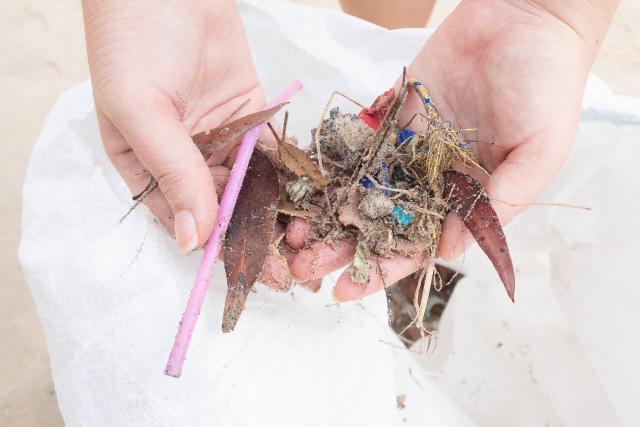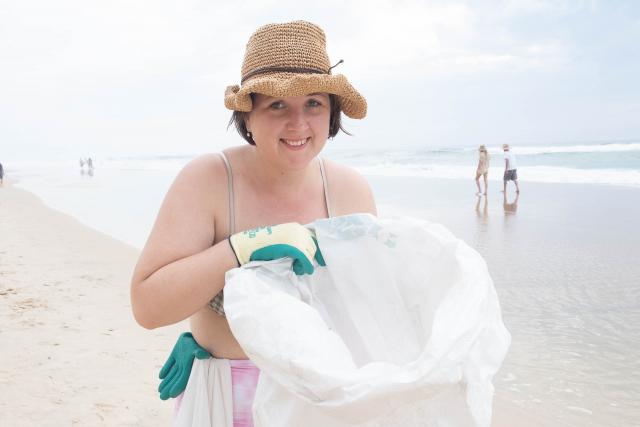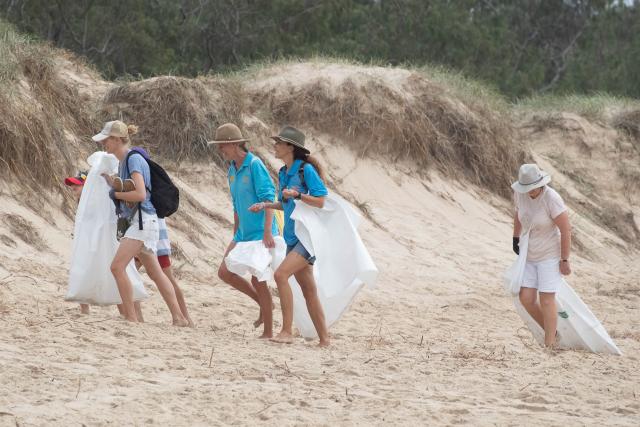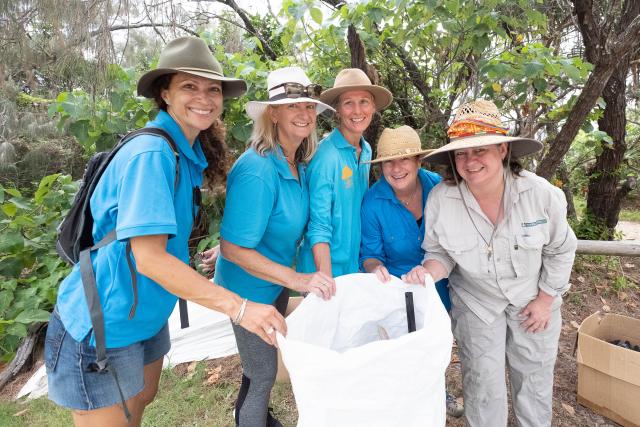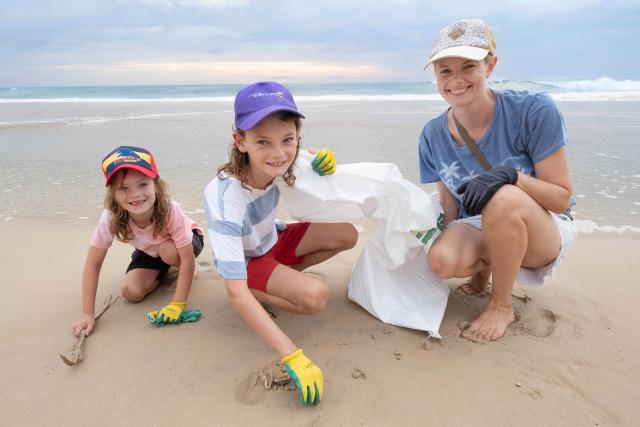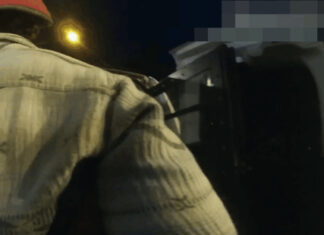Tiny pieces of plastic and polystyrene balls made up the bulk of rubbish collected by volunteers at Peregian Beach last Saturday, removing those threats to the survival of turtle hatchlings that are expected to make their way to the ocean this nesting season.
The clean up that attracted about 40 volunteers was the first time Noosa Council had joined in the annual event, run by Sunshine Coast Council in partnership with TurtleCare Sunshine Coast, Reef Check Australia, Unitywater and SEA LIFE Sunshine Coast Aquarium.
“It’s a long running and successful event – now in its ninth year – and we’re thrilled to become part of it,” Mayor Clare Stewart said.
“It’s an incredibly important cause. Ensuring the beach is free of litter helps to give turtle hatchlings a clear passage as they make their way from the dunes to the water after hatching during February.
Volunteers braved a hot and hazy morning to collect rubbish from across the dunes and shoreline at north Peregian Beach access 50, a known turtle nesting area.
Among the group was Prue Henschke who volunteers with Coolum and North Shore Coast Care and walks the beach at Peregian’s southern end every morning to keep an eye out for nesting turtles and hatchlings, and collect rubbish.
Prue said big pieces of debris she suspects falls from passing boats often arrive on the beach south of Victory Park after storms, but every day she picks up rubbish, along with other beach walkers.
She was joined on Saturday by sons Jake, nine, and Cole, seven, who regularly recycle bottles and cans, donating money earned to Coast Care.
“As long as we have enough people doing the right thing, you’re always going to have people doing the wrong thing,“ she said.
Jewel Sophia, who had volunteered for Coolum and North Shore Coast Care for about 10 years, is an avid community volunteer and was happy to protect the ocean she loves.
Louise Blissett, who travelled from Wynnum on Brisbane’s bayside to join friends Toni and Jamie Earl of Tinbeerwah, was surprised by the amount of tiny plastic pieces they found on the beach.
Also surprised at the volume of plastic pieces was Megan Pryce who, though only 30, said she doesn’t remember tiny plastic pieces on the beaches when she was a kid.
Research conducted recently by CSIRO and the University of the Sunshine Coast (USC) found that a turtle had a 22 per cent chance of dying if it ate just one piece of plastic. Once a turtle had 14 plastic items in its gut, there was a 50 per cent likelihood that it would die.
“Even a single piece of plastic can kill a turtle,” USC marine biologist Dr Kathy Townsend said.
“Two of the turtles we studied had eaten only one piece of plastic, which was enough to kill them. In one case, the gut was punctured and in the other the soft plastic clogged the gut.”
The research included a sample of nearly 1000 turtles found dead and washed up on beaches around Australia.

